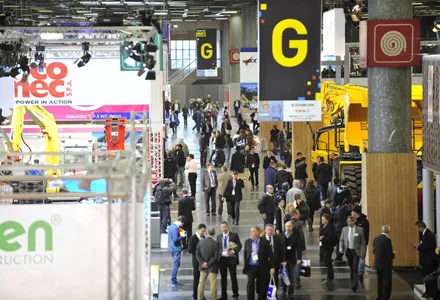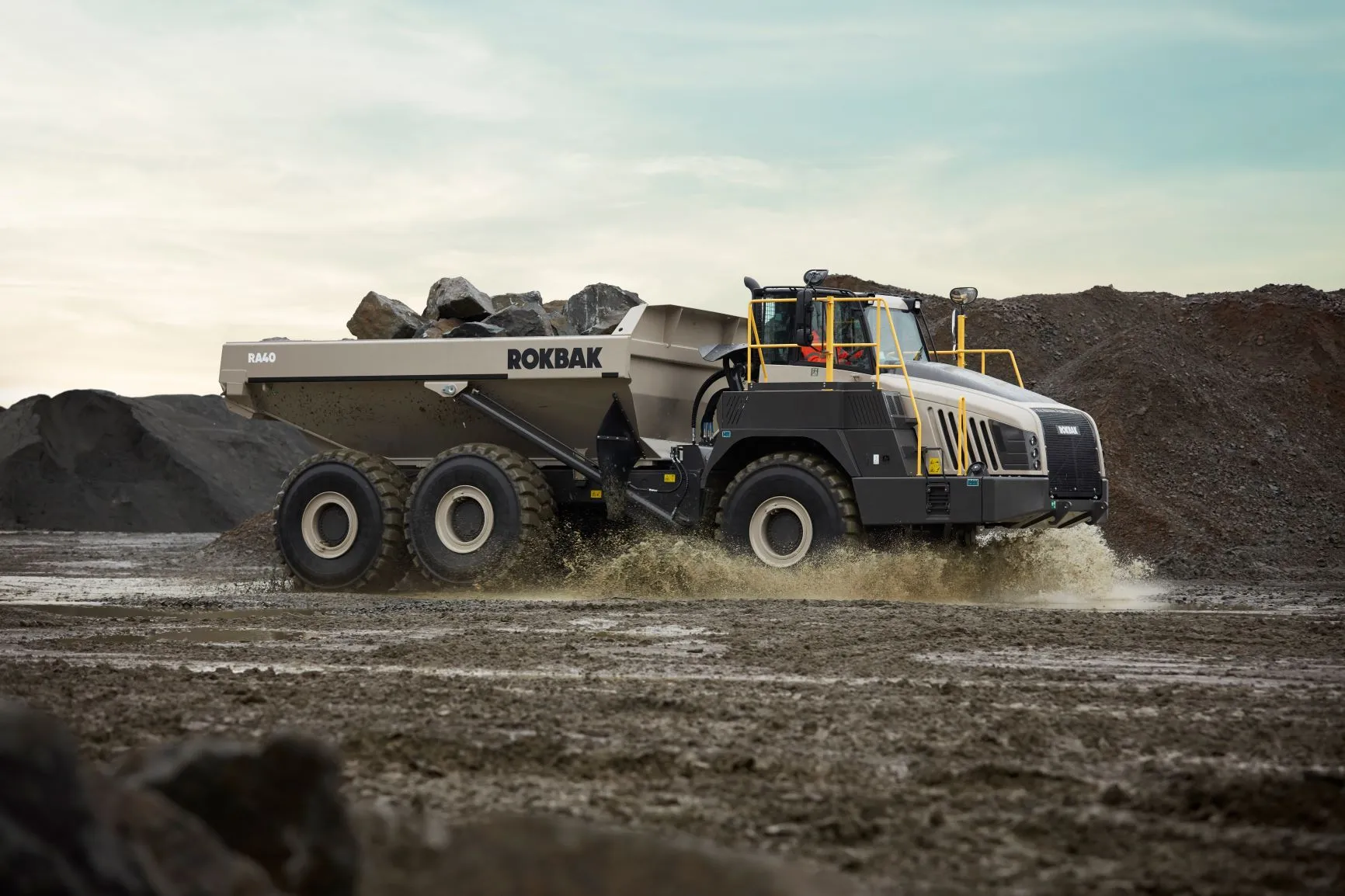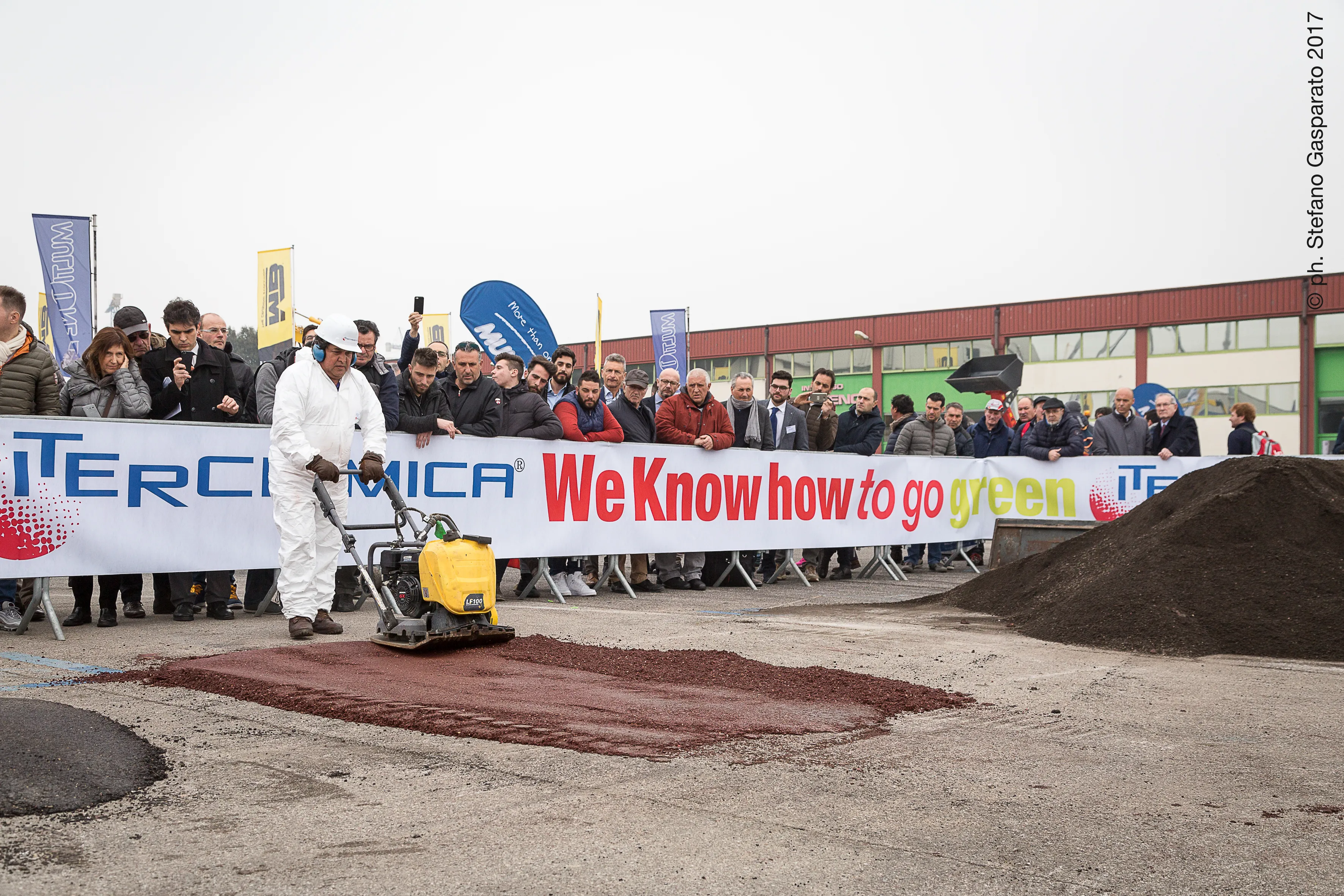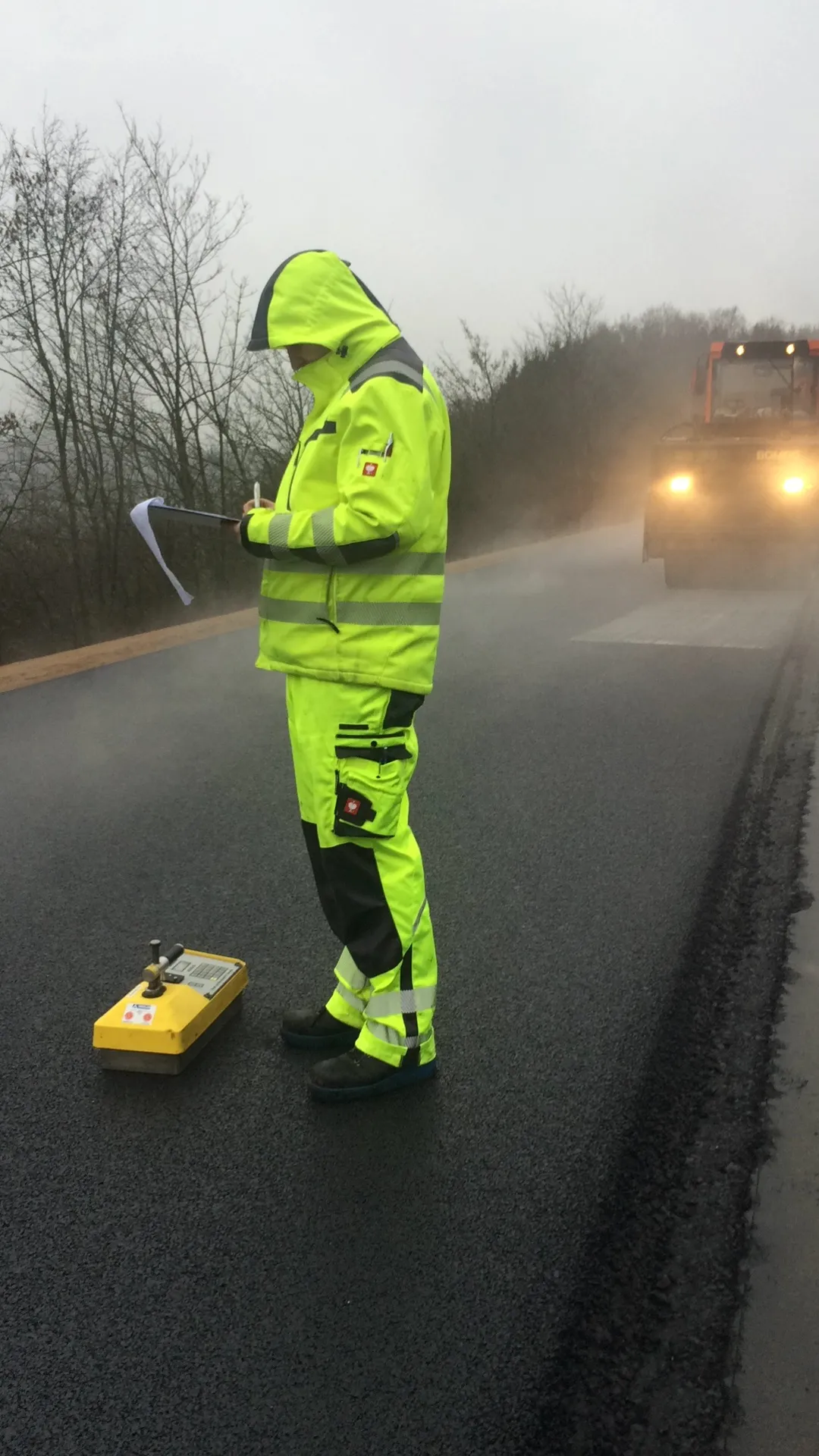Chemical company Evonik is targeting the construction sector at Intermat 2015 with its specialist Dynavis technology which it says can boost the performance of hydraulically-operated plant by up to 30%. “We are taking market share from conventional hydraulic fluids,” Dr Ralf Duessel, head of Evonik’s oil additives business line said. “There’s a continuous move towards premium fluids and by being active in the end markets, we find that we double our impact on the market.” Dynavis technology, which has been a
January 6, 2017
Read time: 2 mins

Chemical company 4009 Evonik is targeting the construction sector at Intermat 2015 with its specialist 7645 Dynavis technology which it says can boost the performance of hydraulically-operated plant by up to 30%. “We are taking market share from conventional hydraulic fluids,” Dr Ralf Duessel, head of Evonik’s oil additives business line said. “There’s a continuous move towards premium fluids and by being active in the end markets, we find that we double our impact on the market.” Dynavis technology, which has been adopted by six oil companies, involves the addition of oil-soluble polymers to hydraulic fluid. The clusters of molecules are small when cold, growing as the temperature of the fluid rises to maintain its viscosity. When standard hydraulic fluid is used, it becomes less viscous as the temperature rises so that some of the fluid starts running against the flow, a phenomenon known as ‘internal leakage’ which reduces the available power. To counter that effect, the operator increases the throttle, the pump works harder and more fuel is burned. Evonik has carried out several field trials, first scientific ones where a set operation was repeated with varying fluids, drivers and ambient temperatures and then in real-life situations with end users. Typical savings are between 5 and 10%, says Duessel, although 30% is possible in certain situations.
German construction firm Schrode trialled the new fluid in its5895 New Holland and 718 Liebherr excavators – and then switched over its entire fleet. Schrode reported that it saved between 10 and 15% of fuel in mixed mode and up to 25% with heavy stone milling.
Excavator operator Dieter Pukowski commented “Instead of refuelling after one and a half days, I can work non-stop for two days straight. Plus when simultaneously activating different functions, such as pivoting and compacting, there’s no power loss.”
We will see more and varied versions of this technology in the future, says Dr Oliver Eyrisch, director of global marketing and branding Evnonik. “This is an area that will grow significantly. It’s a recent development which will keep on growing.”
German construction firm Schrode trialled the new fluid in its
Excavator operator Dieter Pukowski commented “Instead of refuelling after one and a half days, I can work non-stop for two days straight. Plus when simultaneously activating different functions, such as pivoting and compacting, there’s no power loss.”
We will see more and varied versions of this technology in the future, says Dr Oliver Eyrisch, director of global marketing and branding Evnonik. “This is an area that will grow significantly. It’s a recent development which will keep on growing.”









